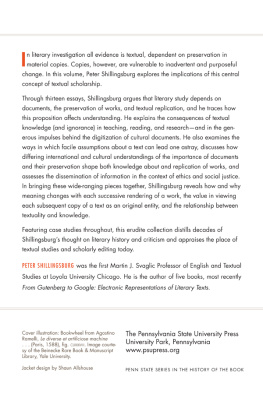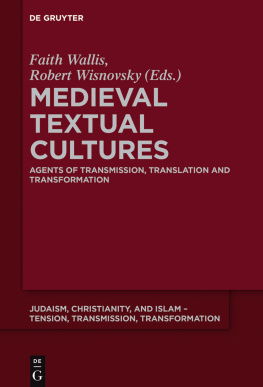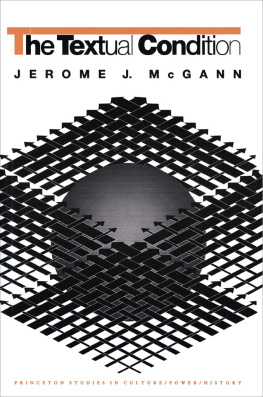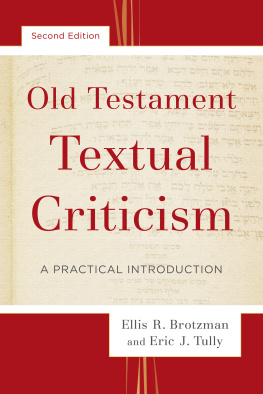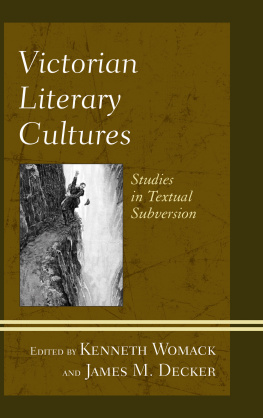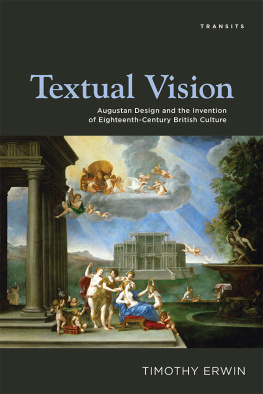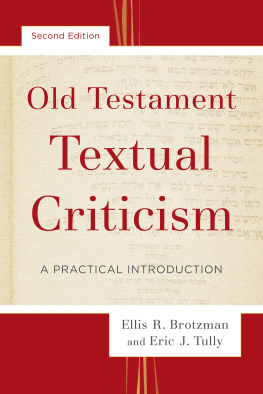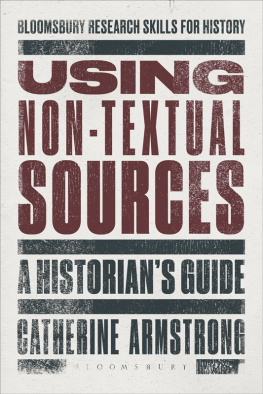Textuality and Knowledge
Textuality and Knowledge

Essays
Peter L. Shillingsburg
The Pennsylvania State University Press
University Park, Pennsylvania
first appeared as Textual Criticism, the Humanities, and J. M. Coetzee, English Studies in Africa 49, no. 2 (2006).
includes material first published in How Literary Works Exist: Convenient Scholarly Editions, Digital Humanities Quarterly 2, no. 2 (2009).
Grateful acknowledgment is made to The Society of Authors as the Literary Representative of the Estate of Virginia Woolf for permission to photo-quote from Woolfs original documents.
Library of Congress Cataloging-in-Publication Data
Names: Shillingsburg, Peter L., author.
Title: Textuality and knowledge : essays / Peter L. Shillingsburg.
Other titles: Penn State series in the history of the book.
Description: University Park, Pennsylvania : The Pennsylvania State University Press, [2017] | Series: The Penn State series in the history of the book | Includes bibliographical references and index.
Summary: A collection of essays exploring the role of textual studies in understanding and editing texts, and in understanding the historical developments and cultural differences in editorial and archival systemsProvided by publisher.
Identifiers: LCCN 2017000666 | ISBN 9780271078502 (cloth : alk. paper)
Subjects: LCSH: Criticism, Textual. | Editing.
Classification: LCC P47 .S35 2017 | DDC 801/.959dc23
LC record available at https://lccn.loc.gov/2017000666
Copyright 2017
The Pennsylvania State University
All rights reserved
Printed in the United States of America
Published by
The Pennsylvania State University Press,
University Park, PA 16802-1003
The Pennsylvania State University Press
is a member of the
Association of American University Presses.
It is the policy of The Pennsylvania State University Press to
use acid-free paper. Publications on uncoated stock satisfy
the minimum requirements of American National Standard
for Information SciencesPermanence of Paper for
Printed Library Material, ansi z39.481992.
CONTENTS
Sound evidence undergirds knowledge; unsound evidence cannot lead to or support knowledgeexcept by accident. That maxim distinguishes knowledge from speculation, belief, hope, superstition, and demonstrable falsehood. In literary studies, all evidence is textual. It depends on documents, document preservation, and textual replication. Interpretive strategies are for understanding the evidence. Of any proposition in literary history, one asks first, How do you know? What is the evidence? Once evidence is produced, the first question to ask is Where did that come from? Only when one knows what one is examining does it make sense to explore the associated questions about contexts of writing and publication, effects on readers, and probable or plausible intentions for the purposes, meanings, or significance of texts.
To address these questions, one needs not only original documents but a discipline for understanding them. That discipline is textual criticism. Textual criticism investigates what passes for knowledge of the past and what passes for sound interpretive opinions about the past. Textual criticism is fundamental to literary criticism and literary history. Together, these fields mark the boundaries of book history, including investigations of manuscripts and digital materials, which together constitute the history of documents and texts and of the means of their production, dissemination, consumption, and preservation.
As I suggest in the essay on the novelist J. M. Coetzee, later in this volume: Textual criticism, focusing on the material, semiotic, communicative, and provocative elements of text, provides a fundamental act of selfexamination and cannot be skipped over in studia humanitatis. Texts are the material and substance that condition all knowledge and all beliefs. The critical investigation of texts as text, operating in a textual condition and thus affecting human interaction, is the fundamental studia humanitatis.
Lest one think that the discipline of textual criticism and a burning interest in ferreting out and verifying sources can solve the riddle of the connection between textuality and knowledge, it should be noted that no one ever read the original of any literary work; one can only read a copymanuscript, proof, or printeach is a copy or a copy of a copy. None, not even the first copy, is the original. We work at an unbridgeable distance from the object of our attention. Is it a book? Is it a text? Is it a work? What are the consequences of that gap? Does it give us freedom to think and say anything we want? Or, does it impose a responsibility to be met thoughtfully?
The Plan
The essays in this collection are about the relationship between textuality and knowledge. Though written over a period of time for a variety of venues, they all contribute to that central idea. Textual awareness, or lack thereof, affects teaching, reading, and research. The first essay lays out the general functions of textual criticism for nonspecialist students and critics, emphasizing the interpretive consequences of textual variation and the value of textual awareness. The second essay explores further the role of textual criticism in the history of humanistic study, demonstrating the interpretive consequences of major revisions in a sample work (J. M. digs a bit deeper into the relationship between authoring and book production, illustrating the role of bibliographical and book history investigations in identifying as precisely as possible the text one is examining. It illustrates the lengths to which one can go to answer this books fundamental questions about knowledge: Where did that come from? How do you know? The final chapter reverts to the subject of the relations between textual studies and cultural studies, focusing attention on the ethical issue of social justice with regard to the generation and dissemination of textual knowledge. My aim in the whole is to explain the role of textual studies in literary studies. Any old text will not do, unless one does not care what it does.
The Gender and Politics of Knowledge
In the last quarter of the twentieth century, the study of literature explored with great enthusiasm and intellectual profit the proposition that disinterested knowledgeknowledge that purported to be unassailable because of its comprehensive grounding in verifiable evidence and because it rejected overt political biases and agendaswas, in fact, deeply committed to biases and political agendas related to the mainstream sense of self. Unacknowledged political agendas of disinterested pursuits of knowledge were, it became widely thought, designed to protect the status quo power structures in academe and in society. One result of the rebellion against disinterested (but actually self-interested) scholarship was to pursue openly a vast array of interests and agendas, both in the original literary texts and in the scholarship purporting to elucidate such works. Among the most valuable ensuing developments were womens studies, postcolonial studies, gay and lesbian studies, and ethnic studies. In this book, it might have been good to illustrate the relationship between textuality and knowledge and these overtly political approaches to literature; however, I have not done that. The central concern of this book is not the writings by men or women or minorities. Instead, my central concern is the value, indeed necessity, of determining the relationship between the texts one is using and the knowledge one purports to support by reference to them. The principles I am exploring are, I believe, the same regardless of the gender, geography, ethnicity, or temporal placement of a writer. The relation between documents as evidence and criticism as argument is without gender, nationality, time, or place. In order to keep my illustrations from being a litany of he said, she said hearsay evidence, I had to confine my illustrations to textual histories that I had examined firsthand. Case studies in this book include: extended illustrations from the works of a twentieth-century English woman, Virginia Woolf; a living South African, J. M. Coetzee; and a nineteenth-century Englishman, William Makepeace Thackeray. There are many other references to smaller points in the textual histories of other writers, many more of them men than women. But my concern is with the relationships between evidence and knowledge, and that is not, per se, a gendered or political issue, though the criticism that is based on that knowledge probably is. I do not know how to illustrate one relationship between document and knowledge that holds true only for the writings of women and a different one that holds true only for the writings of men. I do, however, show the consequences of ignoring, or of being aware of, the importance of documentary evidence in critical arguments.

